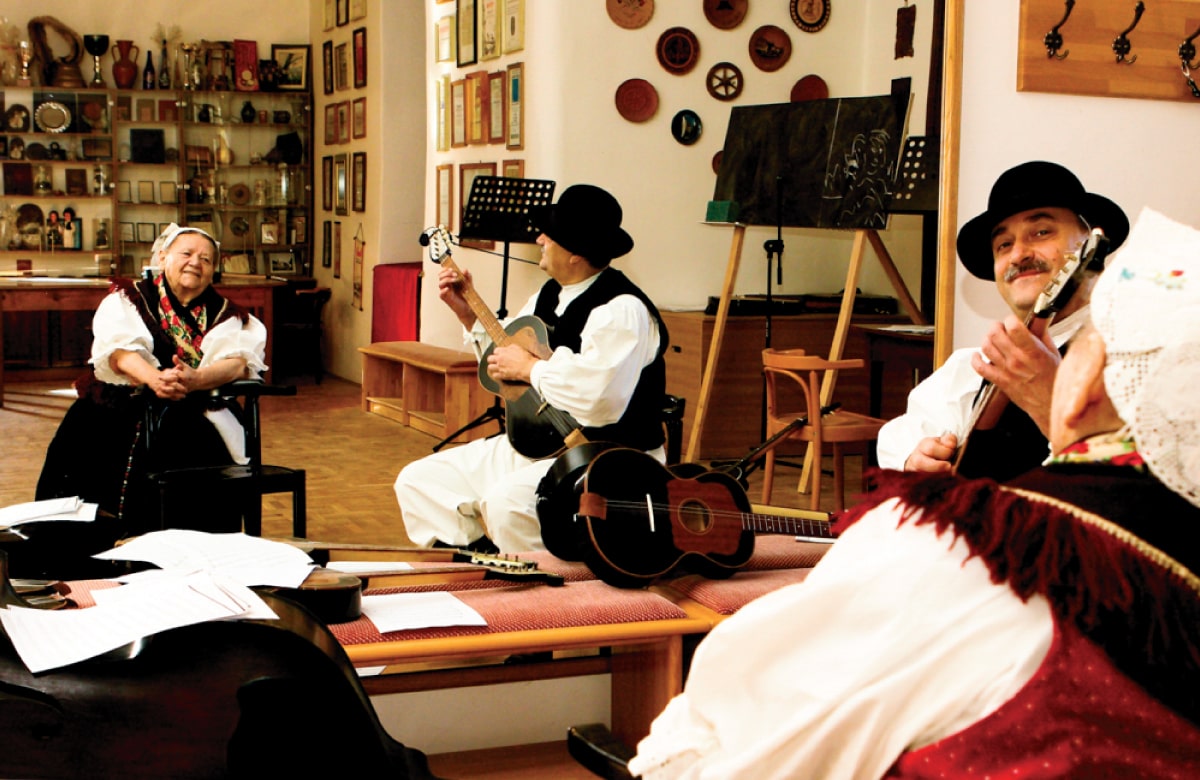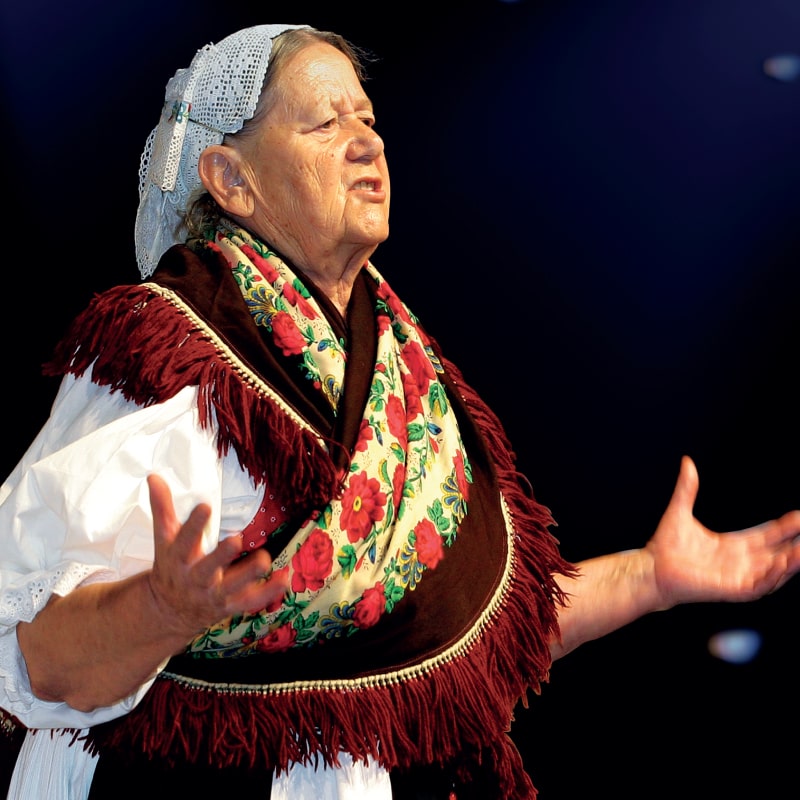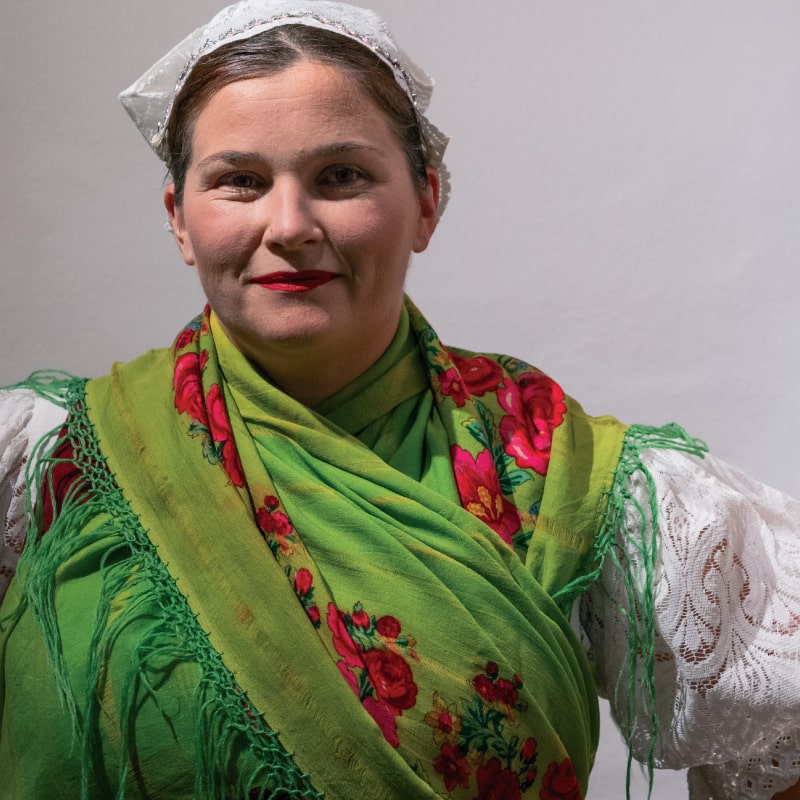Međimurje folk song
Međimurje folk song is a musical gem of northern Croatia, simple in form but deeply infused with emotion. These songs, passed down from generation to generation, often speak of love, life's joys and sorrows, reflecting the spirit and heart of the people of Međimurje. In its modesty, the song carries a universal beauty that transcends borders, and precisely because of its uniqueness, it has been included on UNESCO's Representative List of the Intangible Cultural Heritage of Humanity. Today, it is performed both in its original form and in modern musical arrangements, continuing to live on and reach new generations and audiences around the world.
Međimurje folk song is not just a song – it is the voice of the people, a gentle and sincere life story that still touches everyone who hears it.
“dej mi, Bože, joči sokolove
išče k tomu perje labudovo
kaj preletel črez široko morje
i poljubil drago srce moje
vu meni je srčece zdrhtalo
kada se je od tebe gibalo
ti si meni po serdini srca
kak v črljeni jabuki koščica”
— Međimurje folk (song)
The earliest records of Međimurje folk songs date back to the 16th century. Although they were originally performed mostly by women, today they are sung in various forms and occasions, and represent an important part of the cultural identity of all the people of Međimurje. Based on their structure and the age of the lyrics, traditional songs are divided into old and new, while stylistically and thematically they are categorized as either lyrical or epic. The richness of stylistic expression allows these songs to be performed in various musical forms – from monophonic and polyphonic singing to vocal-instrumental interpretations – while always preserving the original connection between lyrics and melody, thereby maintaining the authenticity of traditional music.




Međimurje folk song is an integral part of the traditional dances of this region, yet its role goes far beyond staged and gala performances – it is deeply embedded in the daily life of Međimurje. This everyday presence ensures its survival and future. Popevka accompanies people through all stages of life – growing up, falling in love, marrying, celebrating, attending church, but also grieving – all touched by a hint of gentle, authentic melancholy that, as they say, characterizes this land between the Mura and Drava rivers.
The preservation of this precious tradition now lies primarily in the hands of cultural-artistic societies. Around fifty top-level singers—masters whose knowledge and skill were pivotal for inscribing Međimurje popevka onto UNESCO’s Representative List of the Intangible Cultural Heritage of Humanity—have been identified in the region, supported by experts and local as well as national institutions. It is especially important to emphasize the role of Međimurje women – mentors who pass this musical heritage to younger generations. Among them, Elizabeta Toplek, better known as Aunt Liza, stands out; her voice and dedication are considered the emblem of Međimurje popevka. Thanks to her and other performers, this unique musical tradition is set not only to delight domestic audiences but also to captivate international listeners.
Međimurje folk song – UNESCO cultural heritage
Spotify
You can already listen to Međimurje popevke performed by Marija Vidović and other artists on our official Spotify profile.
Spotify